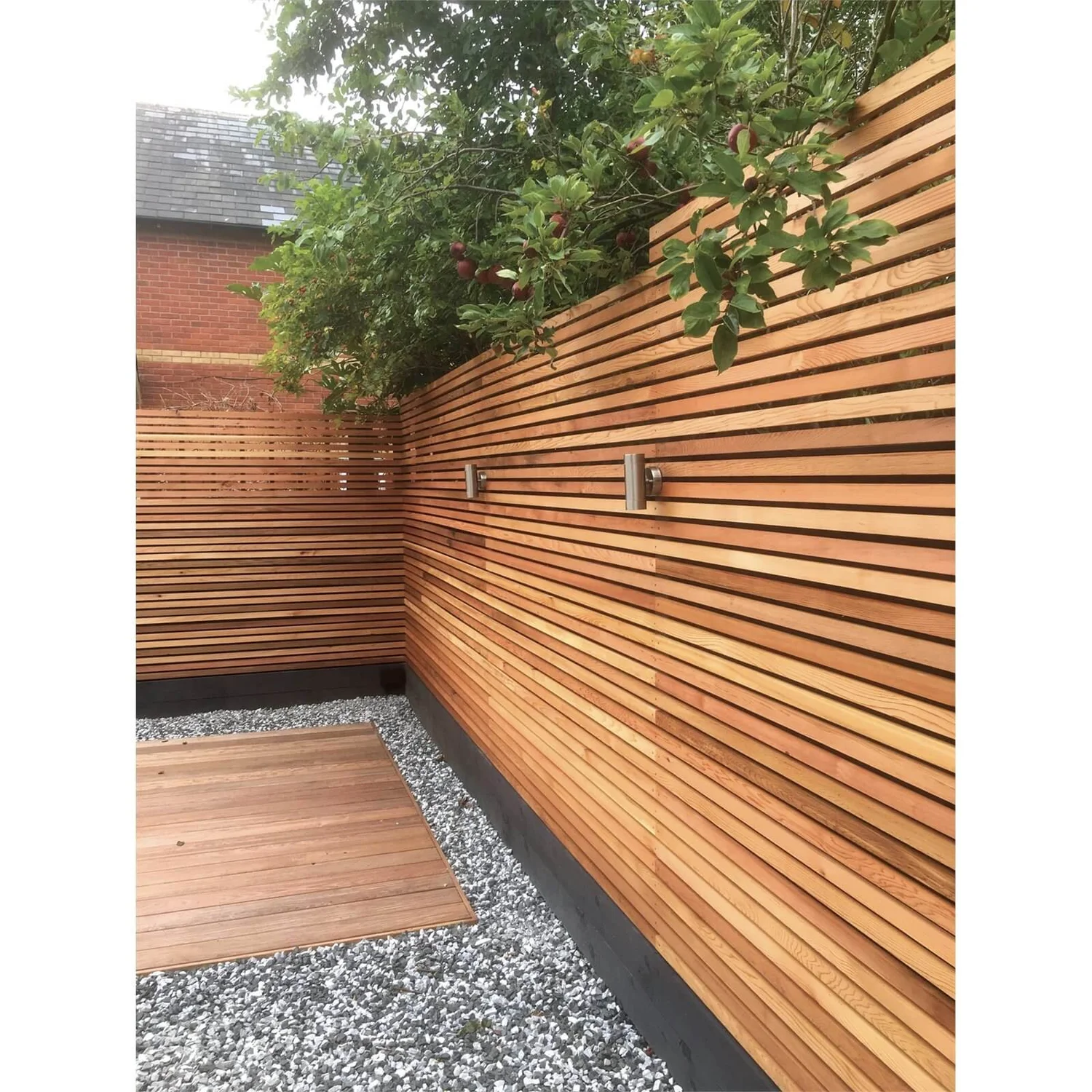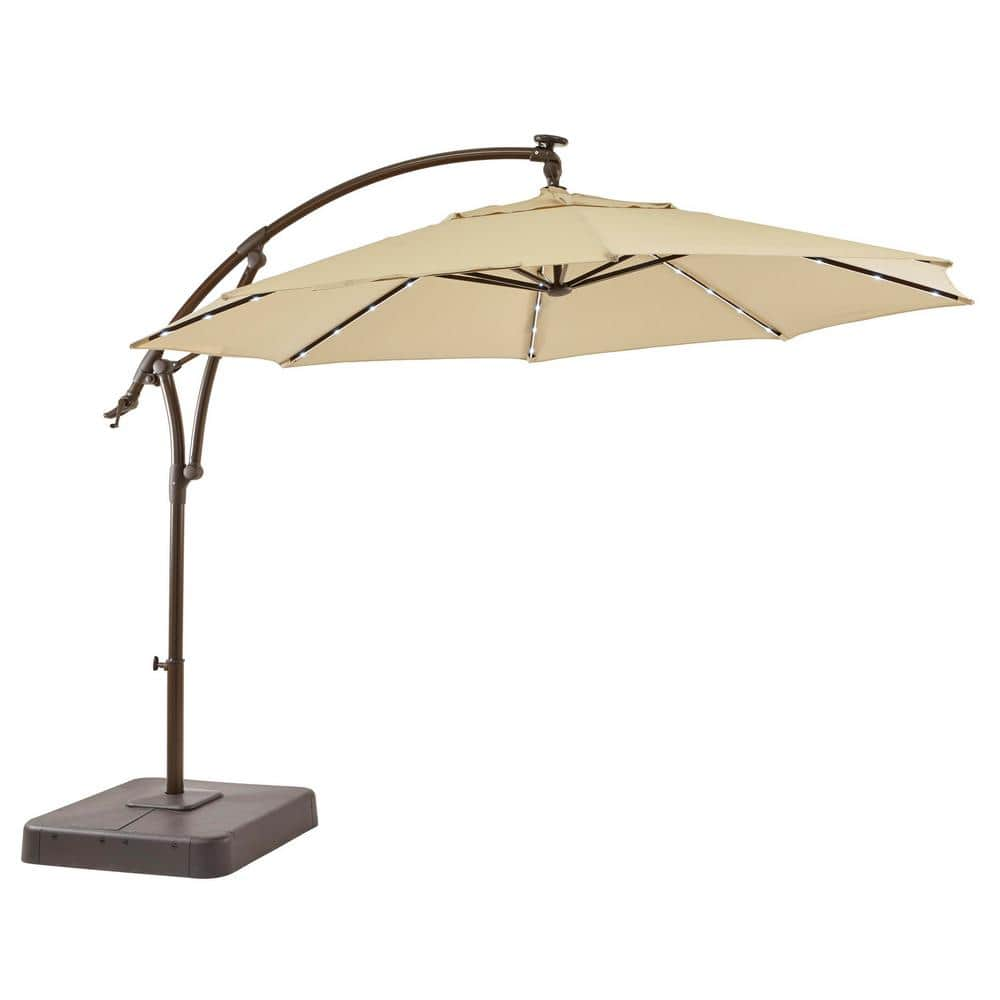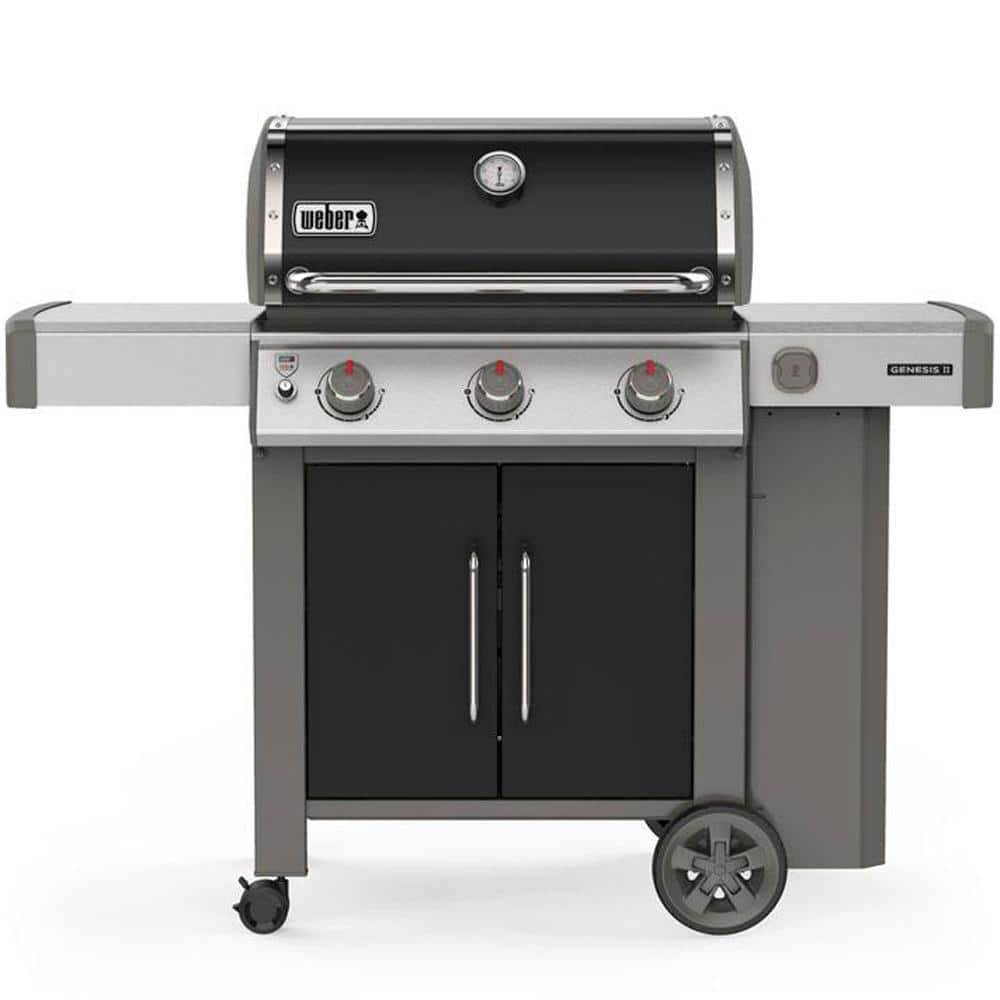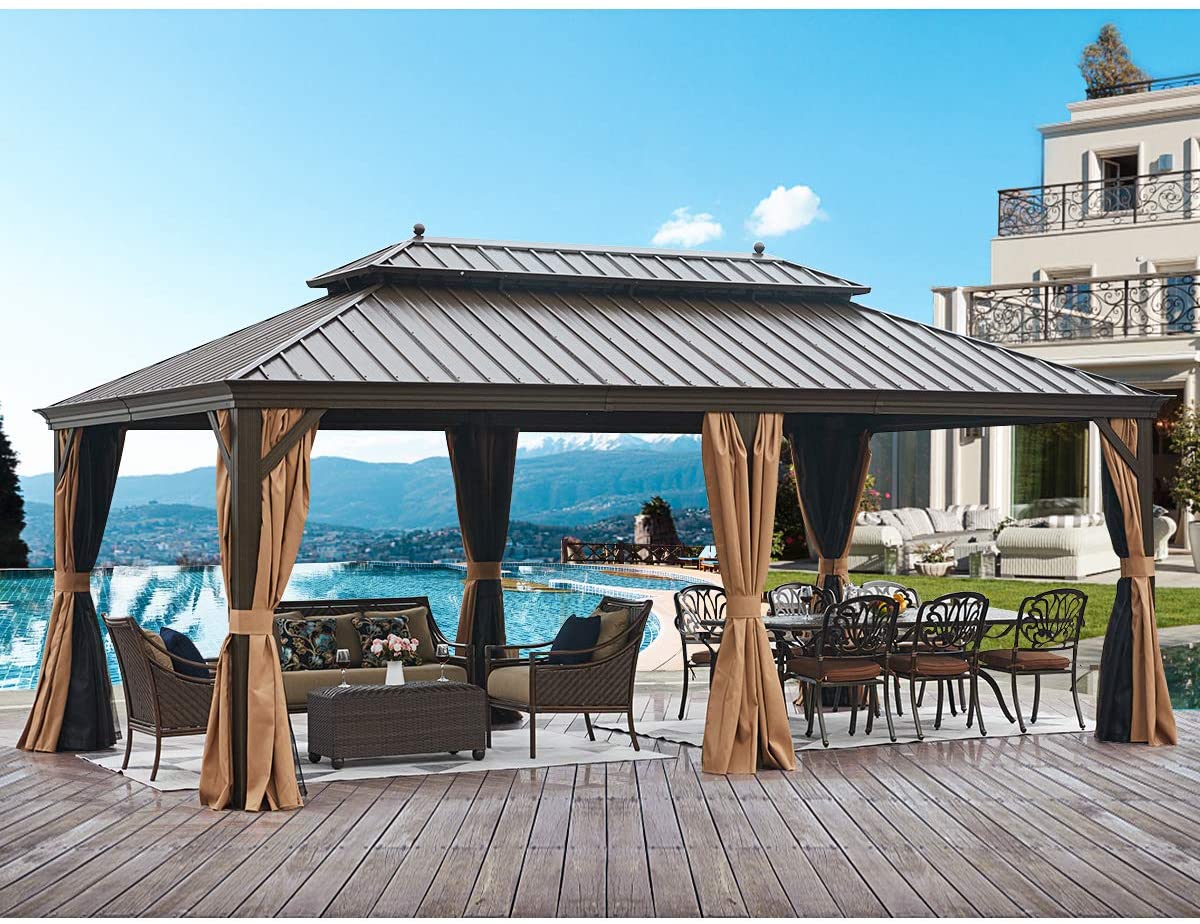Candian Western Red Cedar SertiWOOD Battens-Screen Slats Fencing (21 Pack) 1.65m2
Timber Focus SertiWOOD Canadian Western Red Cedar is a popular wood for use for cladding and landscaping applications.
Timber Focus SertiWOOD Canadian Western Red Cedar is a popular wood for use for cladding and landscaping applications. We supply premium western red cedar cladding for exterior use, including batten screen, cladding, slatted and contemporary fencing. The 18 x 38mm x 1.83 metre 21-piece pack of premium Western Red Cedar is planed with rounded edges and has a planed surface on all four sides. It is a clear-grade, slowly grown old-growth wood that is extremely durable and is, therefore, one of the best available on the market today. As a guide, You need 1.5 bundles per 6’x6′ fence.
If you decide to let the Cedar naturally weather, it will turn an attractive, silvery-grey colour. For a more contemporary look, you can choose from a modern range of wood tones, or just use an oil to sustain its golden-brown colour. For projects involving above-ground fencing and cladding, no additional treatments are needed.
If you are considering fixing cladding or fencing, we recommend Timber Cladding Stainless Steel A2 Countersunk Screws or Annular Ring Stainless Steel Nail. They are can be ordered easily from our online shop, in varying lengths depending on your requirements.
Western Red Cedar Canadian Imported Clear Wood. 18 x 38mm planed smooth with rounded corners. Natural golden-brown colour. Quick and easy to install, with multiple uses including slatted, screen, batten and contemporary fencing. Slow-grown and selected durable heartwood from the West Coast of British Columbia Canada. Can be stained or painted allow to dry or acclimatise
Available in 1.83 metre lengths. Sourced from sustainable forests and PEFC certified. Meets the UK and European Cladding Regulations CE marked to EN14915, BS1186, BS8605. Timber quality is Premium No 2 Clear and Better only Grade.
This item is delivered to you direct from one of our suppliers, please see our Terms & Conditions for more details.
- Durable
- Stable
- Lightweight
- Slow Grown Imported from West Coast Canada – NOT Homegrown or British
Additional information
| Material | Solid Wood |
|---|---|
| Product Dimensions (H)x(W)x(D) | 18 x 38 x 1830mm |
| Guarantee | A minimum 25year Service life on the durability of the wood on well maintained above ground cladding |






Reviews
There are no reviews yet.